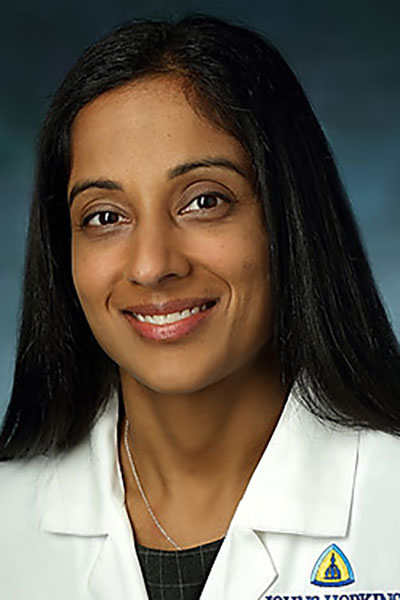The latest advancements in the understanding of the epidemiology, pathophysiology, and therapies—both current and those in the pipeline—of bronchiectasis will be highlighted in the ATS 2024 International Conference scientific program.

The ATS Conference News spoke with Nirupama Putcha, MD, MHS, about the hot topics of discussion among bronchiectasis specialists as ATS 2024 San Diego approaches. Dr. Putcha is an associate professor of medicine at Johns Hopkins University and program chair for clinical problems at ATS 2024 San Diego.
What new developments in bronchiectasis can attendees expect to learn more about at the ATS 2024 International Conference?
Dr. Putcha: There will be some sessions looking at novel therapeutics and recent clinical trial results reported, not just for primary results but also with several subgroup analyses to understand populations that could benefit from this research.
There is also a lot of interesting science looking at environmental exposures, omics, and microbiomes to understand outcomes, disease phenotypes, and disease progression in bronchiectasis.
Additionally, there is some interesting mechanistic work from basic scientists looking at the mechanisms of mucus, for example, and the regeneration and repair of airways.
So, I think there’s plenty there for those interested in basic, translational, and clinical science concerning bronchiectasis, which is exciting.
What opportunities outside of the scientific program will conference attendees have to learn about and discuss bronchiectasis?
Dr. Putcha: There is a Postgraduate Course that will analyze bronchiectasis from the standpoint of understanding risk factors and managing the disease. I believe they are also planning to review some of the emerging therapeutics in this space. That will be a great Postgraduate Course for people interested in learning more about the clinical care of bronchiectasis.
A Meet the Expert session will delve into managing challenging patients with bronchiectasis. It’s always helpful to hear from experts in the specialty about dealing with unique cases and bringing those lessons home with you from the conference.
What advice would you give physicians interested in learning more about bronchiectasis to make the most of the International Conference experience in San Diego?
Dr. Putcha: I think this will depend on where each individual wants to focus their energy because there are several unique areas and approaches to look at with bronchiectasis. For example, attendees can focus on specific subtopics, such as non-tuberculous mycobacteria or cystic fibrosis, or decide to attend more general bronchiectasis sessions.
For people who want to soak up as much as they can about bronchiectasis, there will be plenty of content about the disease from a clinical perspective, as well as sessions aimed at understanding new therapeutics and new angles on disease progression and the pathobiology of bronchiectasis.
What is at the forefront of dialogue surrounding bronchiectasis right now that is exciting for the present or future?
Dr. Putcha: Some pretty interesting research is happening around some early-phase therapeutics in development, that I expect at least a few poster sessions and lectures will cover.
There is also some fascinating mechanistic work happening in the field that will be scattered throughout the conference regarding omics, microbiomes, and some imaging-oriented work that attendees will want to investigate further.
REGISTER FOR ATS 2024
Register today for the ATS 2024 International Conference! Don’t miss this opportunity to take part in the in-person conference, May 17-22 in San Diego. Join your colleagues to learn about the latest developments in pulmonary, critical care, and sleep medicine.
Not an ATS member? Join today and save up to $540.
